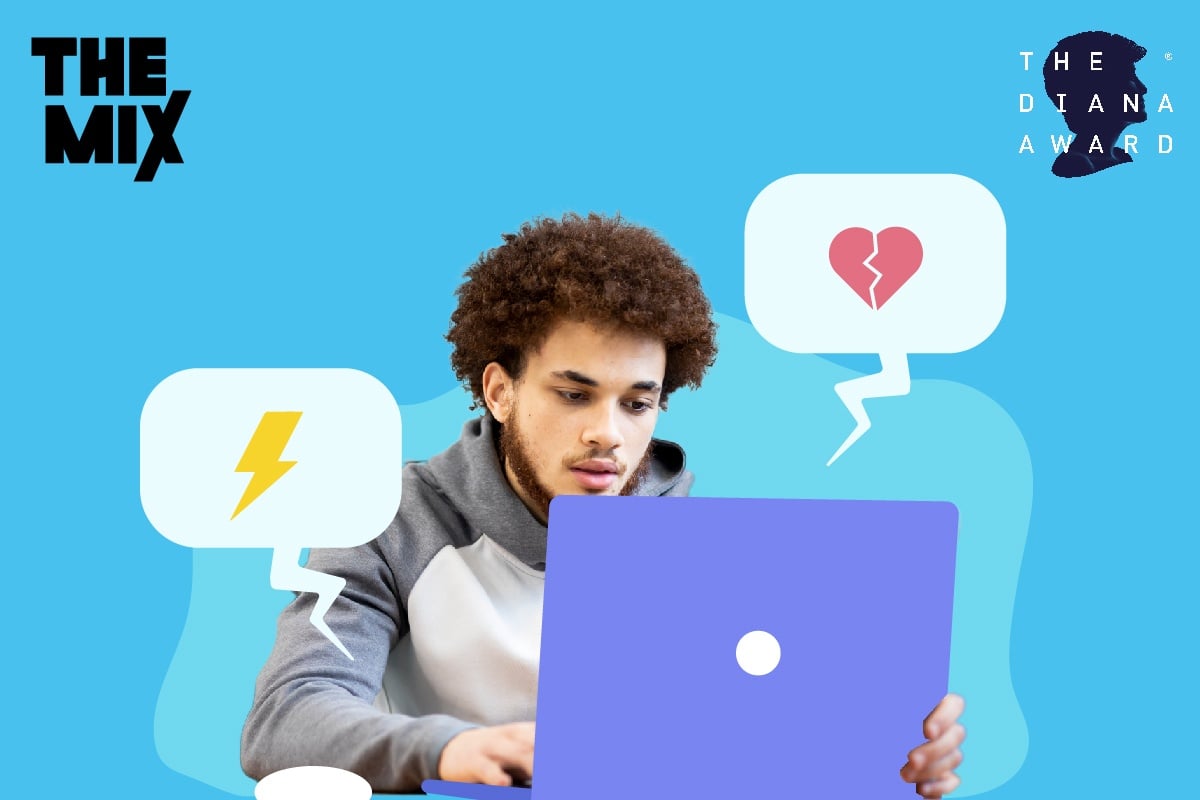Advice for cyberbullying

Coping with cyberbullying can be overwhelming and scary, but if it’s happening to you, remember that you’re not alone and there’s plenty of support out there. We spoke to the experts at The Diana Award to find you all the best help and support advice for cyberbullying.
What is bullying?
The Diana Award defines bullying behaviour as ‘repeated, negative behaviour that is intended to make others feel upset, uncomfortable or unsafe.’ Bullying behaviour generally falls into three main categories:
Verbal bullying
The repeated, negative use of speech, sign language, or verbal gestures to intentionally hurt others, e.g., using hurtful words, discriminatory or offensive language or swear words.
Indirect bullying
The repeated, negative use of actions, which are neither physical nor verbal, to intentionally hurt others e.g., spreading rumours, purposefully excluding another person, damaging or stealing someone’s property.
Physical bullying
The repeated, negative use of body contact to intentionally hurt others, e.g., kicking, punching, slapping, inappropriate touching or spitting.
What is cyberbullying?
Cyberbullying is a form of indirect bullying using technology, for example through social media, text messages or emails. Some examples of cyberbullying include:
- Sending unwanted pictures or messages to someone
- Accessing another person’s account without permission
- Creating fake accounts to impersonate or harass someone
- Sharing other people’s private information online
- Posting offensive messages about someone on social media
- Phone harassment such as calling or sending offensive or threatening messages to someone’s mobile
How to help someone being cyberbullied
Experiencing cyberbullying behaviour can be a very upsetting and isolating experience but it’s important to remember that help is at hand. We asked The Diana Award for their top tips on how to help someone being cyberbullied. If it’s happening to you or someone you know you should:
Save the evidence
Screenshot evidence of posts/text messages that show the bullying behaviour using your mobile phone or laptop. This means you can gather the evidence to show a teacher or a responsible adult what is happening and keep a record of what, when and who did it.
Report
Once you have saved the evidence, report the post. Most social media sites/apps have a help centre and button to report a photo, video, post, status, etc. They will sometimes ask you to write down why you are reporting the content. Most of the time, it is completely anonymous to report someone and they won’t know it is you who reported them.
Block the bully
Every social media platform will have a block button; this means that the cyber bully will no longer be able to contact you. If you’re supporting a friend or peer, an important aspect of online safety is to encourage them to block the person so they no longer receive communication from them.
Do not reply
Often, people who cyber bully others are looking for a reaction, so try not to give them the attention they are craving; instead, do not reply. If you engage with the bully, it could get worse and you could say something in the heat of the moment that you later regret. You could also put yourself in harm’s way.
Don’t suffer in silence
Experiencing cyberbullying can make you feel powerless and isolated. Let someone know what has happened and talk it through with them. A problem shared is a problem halved. This can be a friend, family or teacher.
If you are concerned that someone else is experiencing cyberbullying, ask them if they want to talk about it and let them know you are there to support them. Asking, ‘how are you doing?’ can make all the difference. You may like to offer to go with them when they speak with a trusted adult about what has been happening. It might feel like there’s no way out, but it is possible to make the bullies stop. See our article on how to beat bullying and another on how to help a friend beat bullying for more support, or contact The Mix right away if you need to talk to someone urgently.
Further support for cyberbullying
For more detailed guidance on how to report bullying behaviour across different platforms, including how to report cyberbullying pictures, cyberbullying videos and cyberbullying texts, visit reportharmfulcontent.com.
The Diana Award and The Mix both offer a Crisis Messenger service, which provides free, 24/7 crisis support across the UK. If you are a young person struggling, you can text THEMIX to 85258, or for specialist bullying support, text DA to 85258. Trained volunteers will listen to how you’re feeling and help you think through the next step towards feeling better.
You can also:
- Visit The Mix’s bullying support page for articles, videos and information.
- Visit The Diana Award’s Resource Centre for further resources, including what to do if you’re being bullied online.
- Find out more about The Diana Award’s free Anti-Bullying Ambassador Programme.
Complete this form if you’re under 25 and would like free confidential telephone counselling from The Mix to help you figure things out.
Next Steps
- Chat about this subject on our Discussion Boards.
By Holly Turner
Updated on 21-Apr-2023
No featured article














